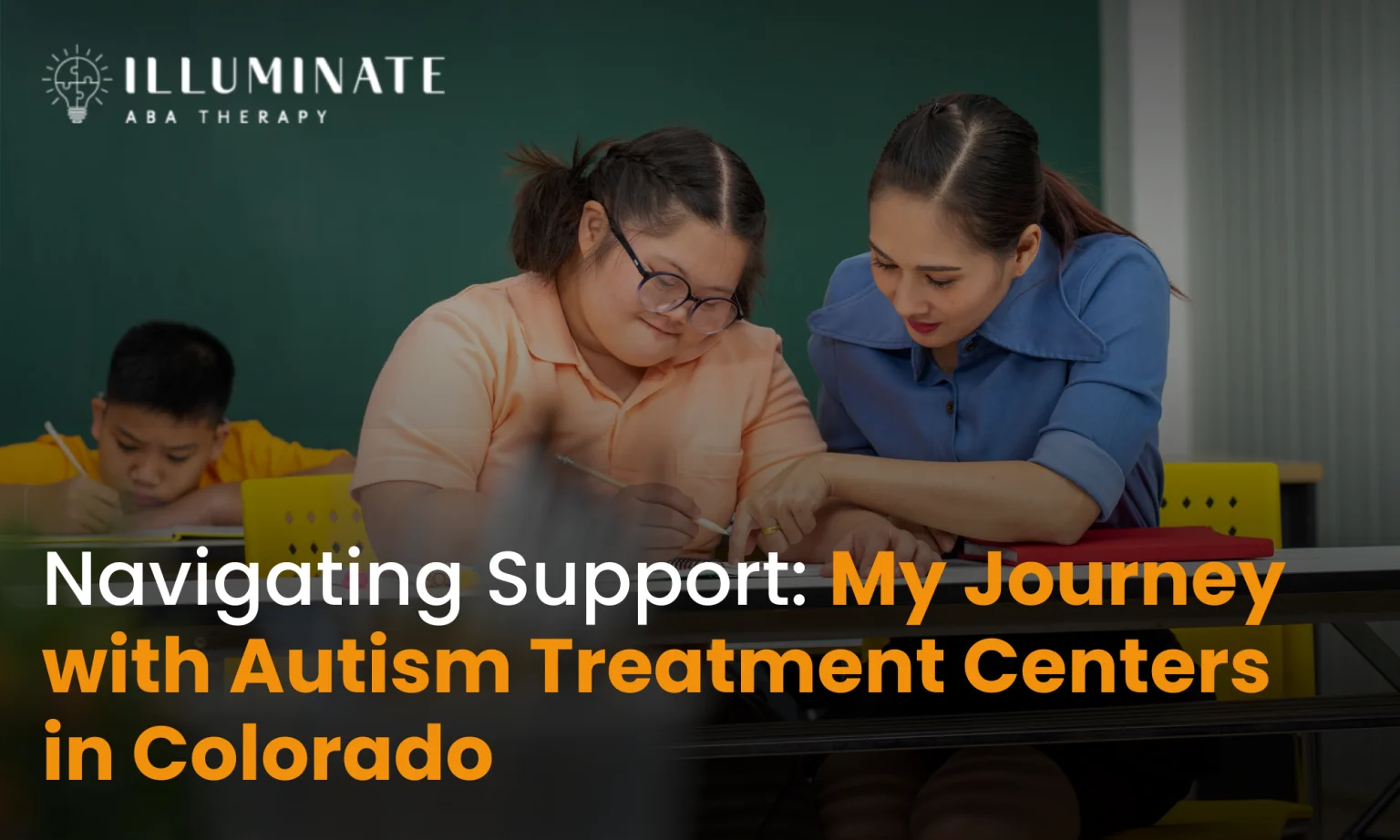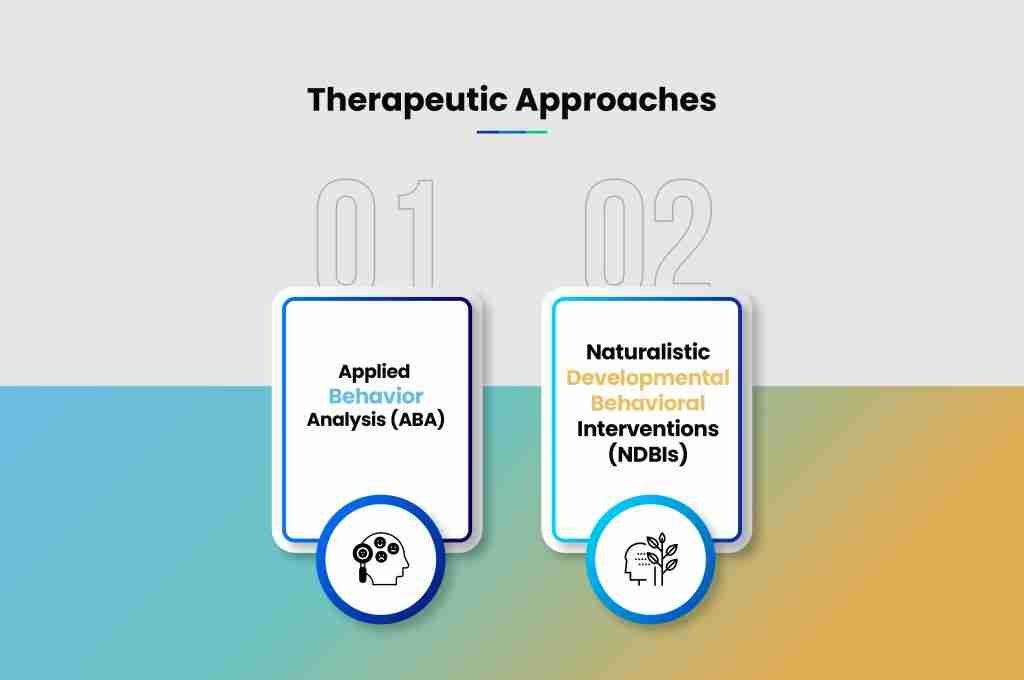Navigating Support: My Journey with Autism Treatment Centers in Colorado
ABA TherapyJuly 17, 2025

ABA Therapy in Colorado
While on my quest for autism therapy in Colorado, one therapy that really made an impression was Applied Behavior Analysis (ABA). This therapy stands out for its methodical and factual approach, designed to help folks with autism spectrum disorder (ASD) enhance crucial skills. It's impressive how ABA focuses on cultivating developmental, social, and language abilities.
Autism Services in Colorado
Here in Colorado, ABA therapy programs are fairly easy to access, often covered by medical insurance, which makes it easier for families searching for help for their children with ASD. These programs revolve around setting meaningful goals, involving parents closely in the therapy, incorporating the child's natural interests, and routinely assessing progress to ensure that interventions are hitting the mark.
Benefits of Treatment Centers
Now, let's chat about what ABA therapy brings to the table for treatment centers in Colorado. While it isn’t a magical cure for ASD, research shows it's quite effective in boosting skill development and curtailing challenging behaviors in individuals with autism. The structured backbone of ABA programs, paired with a keen eye on measurable gains, leads to positive outcomes for many who engage in this therapy (Colorado Kids Pediatrics).
Even though ABA has proven successful in fostering skills and improving behavior, it's wise to consider other therapies too for a rounded plan for those with autism. Things like Naturalistic Developmental Behavioral Interventions (NDBIs) are important because they incorporate teaching methods led by the child, organic learning experiences, and steady progress checks to support development.
As I wander through the world of autism therapy in Colorado, it's clear that ABA therapy is a big player in the comprehensive care and support for individuals with autism. The earnest effort and dedication of the professionals in these centers play a huge role in empowering people with ASD to reach their potential and lead meaningful lives.
Colorado Autism Resources
When you're looking for autism therapy in Colorado, it's really important to dig into the resources out there that can help you along the way. Colorado’s got a host of things to support families dealing with autism, from friendly communities to insurance rules that work in favor of those on the autism spectrum.
Supportive Communities
Colorado’s kind of famous for being one of the best spots to raise a kid with autism. Folks moving in from other states over the past ten years have been singing praises about how welcoming the community is (Colorado Newsline). This supportive vibe helps people with autism and their families feel at home.
You'll find specialist schools, providers offering applied behavior analysis (ABA), and wide-ranging insurance coverage for autism needs. These caring communities are packed with folks who get it, plus they offer ways to help with diagnosis, therapy, health, education, and recreation, giving families in Colorado a leg-up as they tackle autism.
Insurance Mandates
Colorado really shines with its solid insurance rules for autism care. The state requires insurers to come through with better coverage for autism treatment than many other places, luring families who want top-notch care for their kids (Colorado Newsline).
These comprehensive insurance rules mean families can get the therapy and treatment they need without the stress of big bills. Colorado’s big-picture approach to autism care shows just how dedicated they are to the well-being of individuals on the spectrum.
Checking out the supportive communities and insurance mandates in Colorado can give families key pieces of the puzzle they need to make their journey through autism therapy smoother. Using these resources can bump up the quality of care and support available, creating a warm and encouraging setting for growth and development.
Therapeutic Approaches

Let’s take a look at some ways we help kids with autism here in Colorado. A couple of the big names buzzing around are Applied Behavior Analysis (ABA) and Naturalistic Developmental Behavioral Interventions (NDBIs).
Applied Behavior Analysis (ABA)
Thinking about enrolling in ABA therapy programs in Colorado? Here’s the lowdown. ABA is a go-to therapy choice that helps kids build skills they need like talking, socializing, and doing everyday things. We're talking about at least 15 hours a week of this stuff, and the best part? Many insurance plans cover it, making it doable for families without draining the wallet.
ABA is tailored to the kids’ goals, involves parents big time, considers what the child is into, and tracks how they're doing. Sure, it doesn’t "cure" autism, but it sure helps in making those skills shine and dealing with tricky behaviors, so these kiddos can be a bit more self-sufficient.
For folks looking for more on ABA, check out aba therapy resources in Colorado for some neat tips, methods, and info on getting certified right here in Colorado.
Naturalistic Developmental Behavioral Interventions (NDBIs)
NDBIs come with a blend of methods that mix well with how kids like to learn here in Colorado. It’s sort of an ABA and developmental relationship cocktail that lets the kids take the lead, learn naturally, set goals, and keep tabs on their progress (Colorado Kids Pediatrics).
Take the Early Start Denver Model, for instance. Research shows it can boost IQ and handle those tough behaviors in kids with ASD. By meshing developmental with behavioral tactics, NDBIs keep things focused on the child’s growth while still keeping an eye on how they're moving forward.
Programs like JASPER (Joint Attention, Symbolic Play, Engagement, & Regulation) highlight how important parents and caregivers are when it comes to therapy. When they've got the right stuff and know-how, families can really make a difference in a child's life, both at home and when they're out and about.
Mixing ABA and NDBIs, along with other research-backed interventions like teaching social skills, helps kids with autism gather those all-important life tools, handle social situations, and really do well in different settings. By making use of these therapeutic styles that cater to what each child needs, families and educators in Colorado can help kids with autism reach their fullest potential.
Challenges in Autism Therapy
Dealing with autism therapy in Colorado comes with its own set of headaches, mainly due to how Medicaid handles its payments and why therapy centers are closing shop. These issues have thrown a wrench in accessing and providing top-notch autism care in the state.
Medicaid Reimbursement Rates
Colorado's autism therapy scene has taken a hit due to the skimpy reimbursement rates offered by Medicaid. These stingy payments have been fingered as the main reason why at least nine therapy centers for kids with autism have shut their doors in the last year and a half (Colorado Sun).
The gap between what it costs to run these centers and what Medicaid pays has put a serious dent in their finances, leading to shutdowns and leaving many families in the lurch without essential care. Take JumpStart Autism Center in Englewood, for example. It closed because it was dealing with losses of $700,000 in 2021 and $250,000 in 2022. They couldn't make ends meet because Medicaid's rates didn't match up with the real-world costs, resulting in them losing $5 per hour for every Medicaid-covered client.
Provider Closures Reasoning
Why are therapy centers closing? It's not just about the money; it's a tangled web of policies and shifts in how programs are run. Colorado switched from a limited waiver program for autism therapy to a broader Medicaid coverage for kids with autism. But the catch is, they haven't upped the reimbursement rates for pediatric behavioral therapy to keep up. This misstep pinches providers trying to keep their doors open.
Providers are feeling the heat with operational costs shooting up by 42% since 2019 while reimbursement rates crawled up just 7.4%. This imbalance strains the financial health of therapy centers, making it tough to maintain high standards of care for kids with autism. The quality dip has providers worried about how they'll continue delivering services without more closures looming.
These challenges around Medicaid and therapy center closures are a wake-up call for needed policy changes and better support to keep crucial autism services up and running in Colorado
Read More: ABA Therapy Programs in Colorado: Enhancing Autism Support
